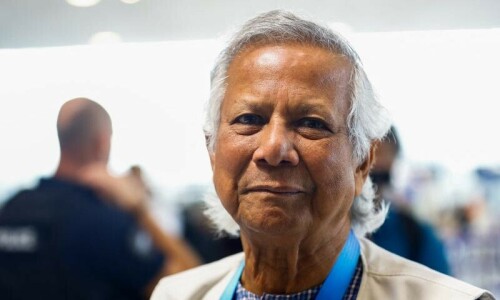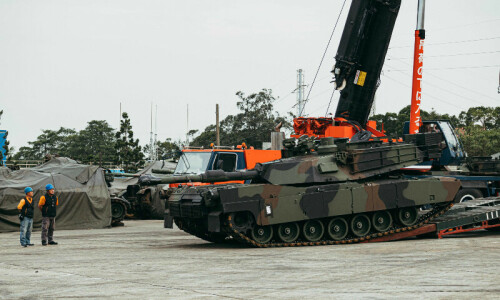
KABUL: Insurgents have stepped up attacks in the area thought to be Afghanistan’s safest, the rugged central province of Bamiyan, moving into the region in a bid to undermine security ahead of the end-2014 exit from the country of most foreign combat troops.
Around 20 Taliban fighters from neighboring Baghlan province have crossed into Bamiyan and launched attacks in several districts, Bamiyan Police Chief General Juma Guldi Yardem told Reuters on Tuesday.
“They usually plant roadside bombs, lead attacks on security checkpoints and some have even launched suicide attacks on some government offices,” Yardem said.
Bamiyan was a focus of world attention in March 2001 when Afghanistan’s former Taliban government destroyed two colossal sandstone Buddhas carved into cliffs, targeting the 1,700 year-old statues with tank and anti-aircraft guns, as well as dynamite, because they were un-Islamic.
The province, where most people belong to the Hazara ethnic group, opposed to the Pashtun-dominated Taliban, is located in the Hindu Kush mountains around 240 km (150 miles) northwest of Kabul, and had been thought to be one of the country's safest areas.
Though infrequent bombings and sporadic attacks have taken place, the government had been working on making the province a centre for tourism, albeit in limited form, with security provided by Afghan police and a small number of soldiers from New Zealand.
It is home also to the Bande Amir chain of lakes, whose deep blue waters are fenced by sheer limestone cliffs.
Yardem said the insurgents, who he claimed had been trained in Pakistan, attacked a police checkpoint in Kohmard district in April, and also laid roadside bombs targeting civilians.
“The insurgents are attempting these attacks in Bamiyan to create fear and panic among people, and make a safe province insecure,” he said.
Bamiyan was one of the first provinces to be handed over to Afghan security forces in July 2011, with around 1,000 lightly armed Afghan police and intelligence forces based there, but no Afghan soldiers.
“As soon as they find a security vacuum, they step up attacks,” Yardem said. “It’s obviously affecting Bamiyan’s security.”
He said he was asking the Afghan interior ministry and security forces in neighboring Baghlan to step up offensive operations against the insurgents, because if attacks were to continue there would be insufficient police officers to guard Bamiyan.
Abdul Rahman Ahmadi, a spokesman for the provincial governor, said security in the province was still comparatively good. European skiers even held an international competition in the area in March, taking advantage of heavy winter snows.
“Bamiyan is safe and secure, but there are some exceptions,” Ahmadi said.
New Zealand’s government earlier this month said soldiers from that country would leave Afghanistan in 2013, a year earlier that planned, because of security improvements in Bamiyan, with a team ready to assess security in the next few weeks.
Violence has surged across Afghanistan since the Taliban began its yearly summer offensive in April, vowing to target Afghan government and security forces, as well as the 130,000 foreign troops in the country.













































Dear visitor, the comments section is undergoing an overhaul and will return soon.